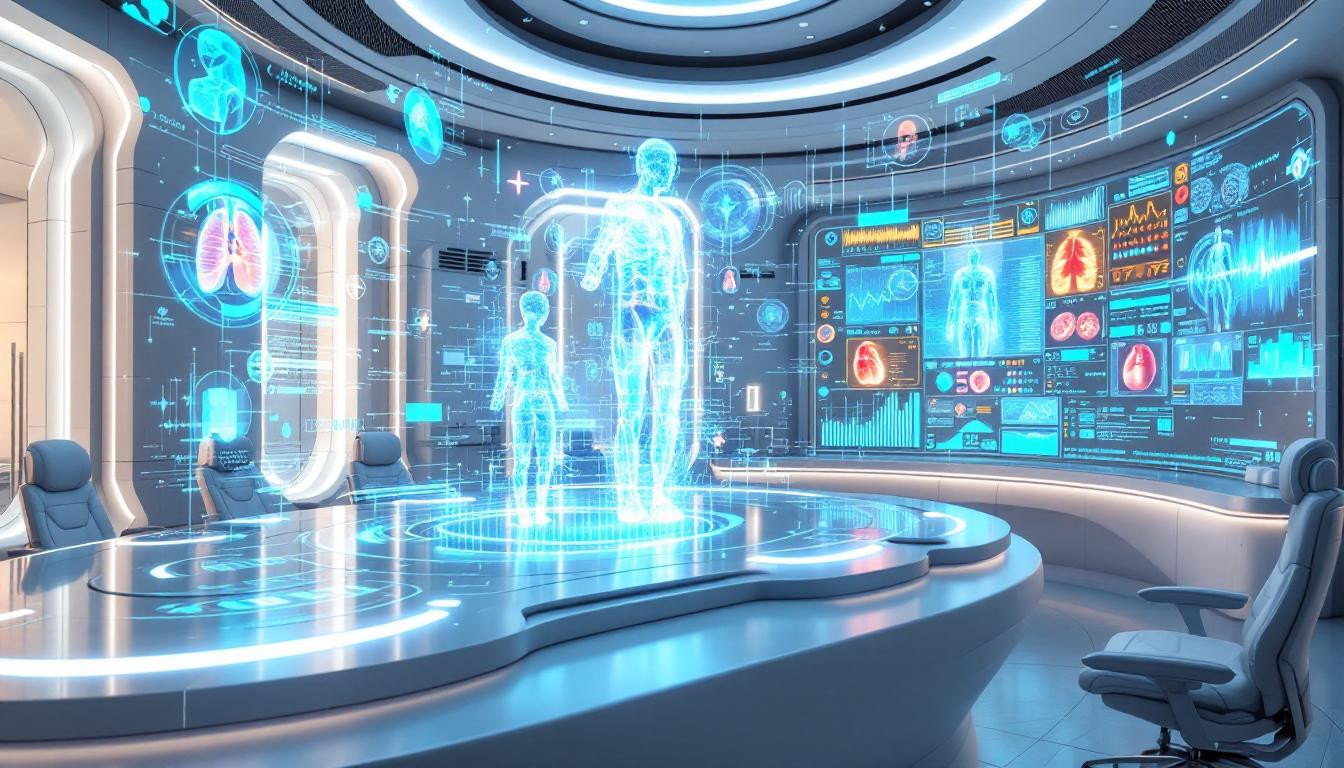China has unveiled the world’s first fully AI-powered virtual hospital, marking a revolutionary step in healthcare innovation. Developed by Tsinghua University, the “Agent Hospital” operates entirely through AI doctors and nurses, offering comprehensive healthcare from diagnosis to treatment with remarkable accuracy and efficiency.
A new era of AI-powered healthcare
The Agent Hospital, developed by Tsinghua University’s Institute for AI Industry Research, represents a groundbreaking advancement in medical technology. Unlike previous healthcare AI tools that assist human doctors, this system functions as a complete virtual hospital with 42 AI doctors spanning 21 medical departments, including cardiology, pediatrics, and neurology.
“This technology has the potential to democratize healthcare access globally, particularly in regions with physician shortages,” says Dr. Michael Chang, a digital health researcher at Stanford University. “However, we must implement robust safety protocols to ensure these systems enhance rather than replace the human elements of care.”
Impressive diagnostic capabilities that rival human doctors
The AI doctors in Agent Hospital have demonstrated remarkable medical knowledge, scoring over 93 percent on standardized U.S. medical exam questions. This accuracy rate exceeds expectations for early-stage AI medical systems and approaches the performance of experienced human physicians in certain specialties.
This technological breakthrough isn’t happening in isolation. Just as Meta’s AI glasses revolutionize communication across 40+ languages, Agent Hospital represents how AI is transforming essential services.
Superhuman efficiency in patient management
The most striking capability of Agent Hospital is its processing power:
- Can handle up to 10,000 patients within days
- Performs tasks that would take human doctors years to complete
- Operates continuously without fatigue or burnout
- Maintains consistent performance across all cases
“The system functions like a vast neural network of medical knowledge,” explains Dr. Lisa Wong, medical AI specialist at Massachusetts General Hospital. “It’s like having thousands of specialist consultations available simultaneously, processing patient information at speeds impossible for humans.”
Training the next generation of doctors
Beyond patient care, Agent Hospital serves as a sophisticated training platform for medical students. This educational component provides risk-free learning experiences with a vast array of simulated cases, including rare conditions that students might not encounter during traditional training.
This educational innovation mirrors other technological advances reshaping how we learn and interact with information, similar to how Microsoft’s new Surface Pro is transforming digital productivity.
Balancing innovation with ethical considerations
The development of AI-powered healthcare systems raises important ethical questions:
- Ensuring patient data privacy and security
- Maintaining human oversight for critical decisions
- Addressing potential algorithmic biases
- Establishing clear liability frameworks
Just as scientists carefully map underwater volcanoes to discover hidden worlds, healthcare regulators must thoroughly explore the implications of AI systems before widespread implementation.
The future of healthcare delivery
Agent Hospital represents a glimpse into healthcare’s future, where AI augmentation could become standard practice. While this technology can process vast amounts of medical information, experts emphasize that the compassionate human element of healthcare remains irreplaceable.
Like astronomers studying black holes devouring stars in distant galaxies, we’re witnessing a phenomenon that challenges our understanding of what’s possible in healthcare.
The integration of AI in healthcare follows patterns similar to other sectors, where thoughtful adoption leads to improved outcomes. Consider how personalized skincare rituals can transform results — healthcare, too, benefits from customization and precision.
Will AI redefine our healthcare experience?
As Agent Hospital demonstrates remarkable capabilities, we must ask ourselves how AI will reshape our relationship with healthcare. The potential for increased access, improved diagnosis, and enhanced efficiency is tremendous—but so is our responsibility to implement these systems thoughtfully, ensuring they serve humanity’s best interests while preserving the irreplaceable human connection at medicine’s core.
